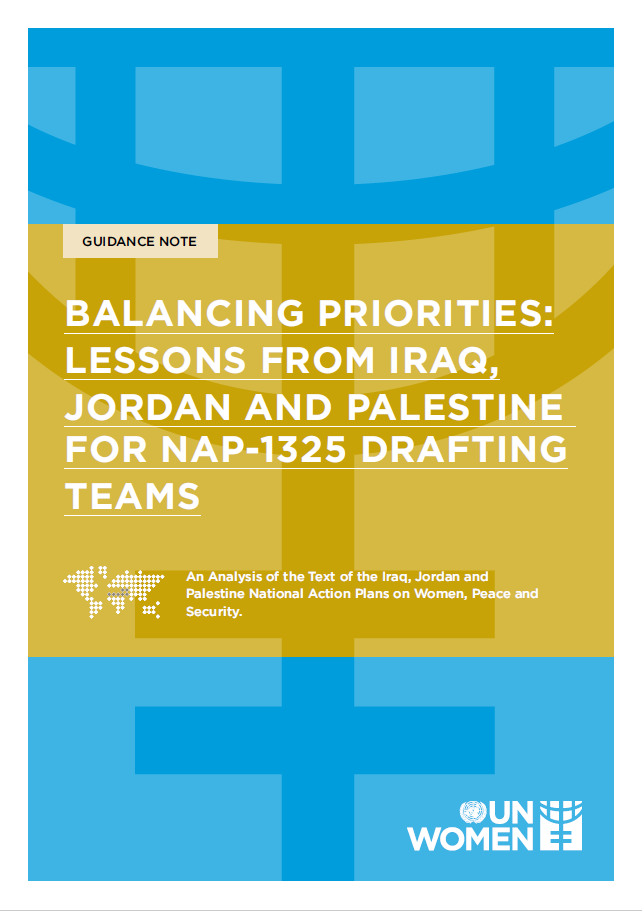
Balancing Priorities: Lessons and Good Practices from Iraq, Jordan and Palestine for NAP-1325 Drafting Teams

While the humanitarian crises that followed the Arab uprisings have impacted civilians in affected countries, women are particularly vulnerable and face specific challenges due to historic and structural gender inequalities. In response, Arab governments have increasingly been utilizing the UN Security Council’s Women, Peace and Security framework as a tool to address issues of gender inequality in times of conflict. So far, four countries across the region have developed and adopted national action plans on WPS (NAPs-WPS); Iraq, Jordan, Palestine and Tunisia. These documents are strategic and important contributions to address and fulfil the human rights and needs of women and girls in these countries.
As these tools are relatively new in the region, States and civil society actors continue to seek support on how to develop NAPs-WPS that are effective and appropriate for their own context. In response, UN Women has analyzed the NAPs-WPS from Iraq, Jordan and Palestine (Tunisia was not covered as its NAP 1325 passed after the finalization of the report), to highlight good practices and draw lessons from them. As other countries in the region are set to develop their own action plans, and NAP-WPS countries begin to develop a second generation of NAPs, this paper seeks to guide and inform the future NAPs-WPS in the region.